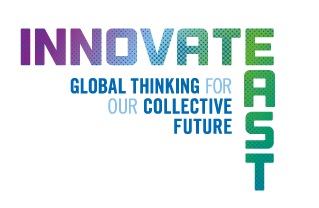SECOND INNOVATE EAST EVENT DELIVERS KEY IDEAS IN RACE TO NET ZERO CARBON
The second Innovate East event of 2021 took place last week, resulting in encouraging progress in our quest to propel the water sector towards its collective net zero carbon by 2030 goal.
The summer event was held over Wednesday 9 and Thursday 10 June and continued to divide efforts across three workstreams – hydrogen, technology and nature-based solutions. A diverse set of stakeholders from a range of organisations both inside and outside the water sector joined Anglian Water, Essex & Suffolk Water and Yorkshire Water to add definition to the outcomes from the first event in March. Each team now has a much clearer idea of their direction of travel, with clear sight on the end goal of turning their solutions into project proposals for funding.
Shaunna Berendsen, Head of Innovation Engagement, said: “It was really encouraging to see how our teams continued to push boundaries and drive solutions in this second event. Our groups were focused, making big strides to define ways forward and I’m confident we’re in a really good place now to develop three important project proposals that can be funded.”
Angela MacOscar, Head of Innovation at Northumbrian Water, said: “During the second session, our teams really got stuck into the ideas that were generated in the first event.
“We managed to make some really good headway, and were able to continue to build on what we had already achieved, making sure some clear progress was made.
“The final event is set to be very interesting, and the second session showed us that we can expect to see some incredible and fruitful deliverables that we can hopefully take forward into our business as usual.”
Pete Stevens, Manager of Carbon Neutrality at Yorkshire Water, said: “The second hydrogen sprint turned its focus to transport and it was encouraging to see how people from various diverse organisations, including the private sector, academia and water companies were willing to share knowledge to help find solutions. Hydrogen will always be a challenging topic as it really is new in terms of mass deployment so it was really encouraging to see all of us focus in to a single area to solve.”
Event two summary:
Hydrogen-based solutions
FOCUS: How can hydrogen support a move to an electric and hydrogen powered fleet?
After the first event in March, this sprint changed its focus to concentrate on optimising how the water sector moves its fleets to make better use of electric and hydrogen sources. It was attended by innovative hydrogen companies who openly shared how we could attempt to tackle this challenge.
To progress, missing data sets must be identified and a shift in approach to look at this as an industry-wide challenge must be realised.
Next steps:
- Collaboration with other industries such as local authorities and the retail industry to build power and insight behind our proposal
-Join up hydrogen and electric vehicle data sets to create a richer picture of the possibilities
-Plan localised trialling logistics
Technology-based solutions
FOCUS: Utilising high value, low grade heat in different, sustainable ways to benefit society
This sprint began to hone in on the opportunities around turning low grade heat from the water recycling process into heat for buildings, specifically in urban areas. How can we manage the demand, the extraction and commercialisation of low grade heat? Could we use a model similar to the purchase power agreement in place for solar power?
A key take away from this sprint was highlighting how collaborative this solution is – it’s not water companies who are saving the carbon using these methods, it’s consumers and the infrastructure around them.
Next steps:
- Define and scope project proposal
- Identify key missing data sets
- Develop working group and funding options
Nature-based solutions
FOCUS: Accelerating the use of nature-based solutions by increasing confidence and the ability to assess risk
This sprint focused on seven key innovation questions that resulted in three areas of focus.
1. Process
How the water industry is regulated makes us naturally risk-averse. We need to work on ways to remove this blocker and make nature-based solutions a preference
2. Technology
How can we use digital twins to understand our assets that sit in the natural environment?
3. Customers and communities
How can we get our customers to be advocates for interventions such as SuDS?
Next steps:
- Examine and identify a defined way forward from the above areas of focus
Although participation in the sprints themselves was capped, anyone could attend the welcome and wrap up sessions at the beginning of day one and the end of day two. Chris Harrop, OBE, Director of Sustainability and Marketing at Marshalls delivered an inspiring and motivating keynote speech on the company’s sustainability journey. He emphasised everyone’s role and responsibility in the mission to net zero and his passion was infectious. View the keynote and Q&A here.
If you’re interested in hearing the teams talk about the outcomes of their two days of work, you can rewatch the welcome session (including keynote) and wrap up sessions here. [Link to be included].
The third and final event of Innovate East 2021 will take place in late September/early October. More information, including how to sign up, will be made available closer to the time. Keep up to date with all of the progress and news about Innovate East by following the LinkedIn page here.
